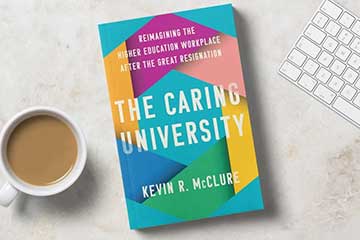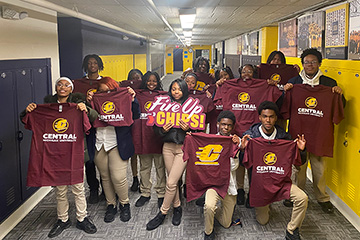Graduate student researches tradeoffs of family and career
Mable Clark studies the impacts that leadership and family life have on each other
Psychology graduate student Mable Clark is currently completing her thesis on the familial tradeoffs of career and family. Clark’s research investigates the priorities of young adults and professionals, and their preferences on leadership roles, having children, and what other aspects of career and family are prioritized. She is also looking into the gender differences of these trade-offs, and the different decisions men and women may feel they should make.
Clark’s background research determined that men have an advantage in leadership positions due to the tendency for heterosexual women to prefer partners that have high incomes and intellect. There is also less of an expectation for men to choose between careers and families. Pregnancy and childbirth take more of a physical toll on women, leading to more career disruptions and therefore a decreased likelihood of ending up in a high position of power.
For her research, Clark is running two studies, the first of which measures the tradeoffs young people make when deciding between career versus family. Her study allows participants to “purchase” attributes of success, such as “a high-salaried job” or “having children” using a hypothetical budget. Each participant makes these “purchases” three times, using a $20, $40, and $60 budget. Decisions of what to prioritize at different budget levels demonstrate an attribute’s perceived importance to a participant versus what is more of a luxury of life.
Her second study focuses on business and political leaders in the US and their family status. Clark will compare offspring and marriage rates of leaders to the average rates. This data will be compared on a sex basis, so female leaders compared to the average female and male leaders to the average male. This will hopefully reveal how leadership role occupancy affects familial outcomes for men and women.
Between the two studies, Clark hopes to be able to learn about the decisions made in early adulthood, and ways they could potentially vary based on sex, as well as the long-term familial outcomes of leadership. The two studies aim to cover the weak spots of the other to create a comprehensive picture of the impact leadership and family have on each other.
This story is brought to you by the Office of Research and Graduate Studies.




